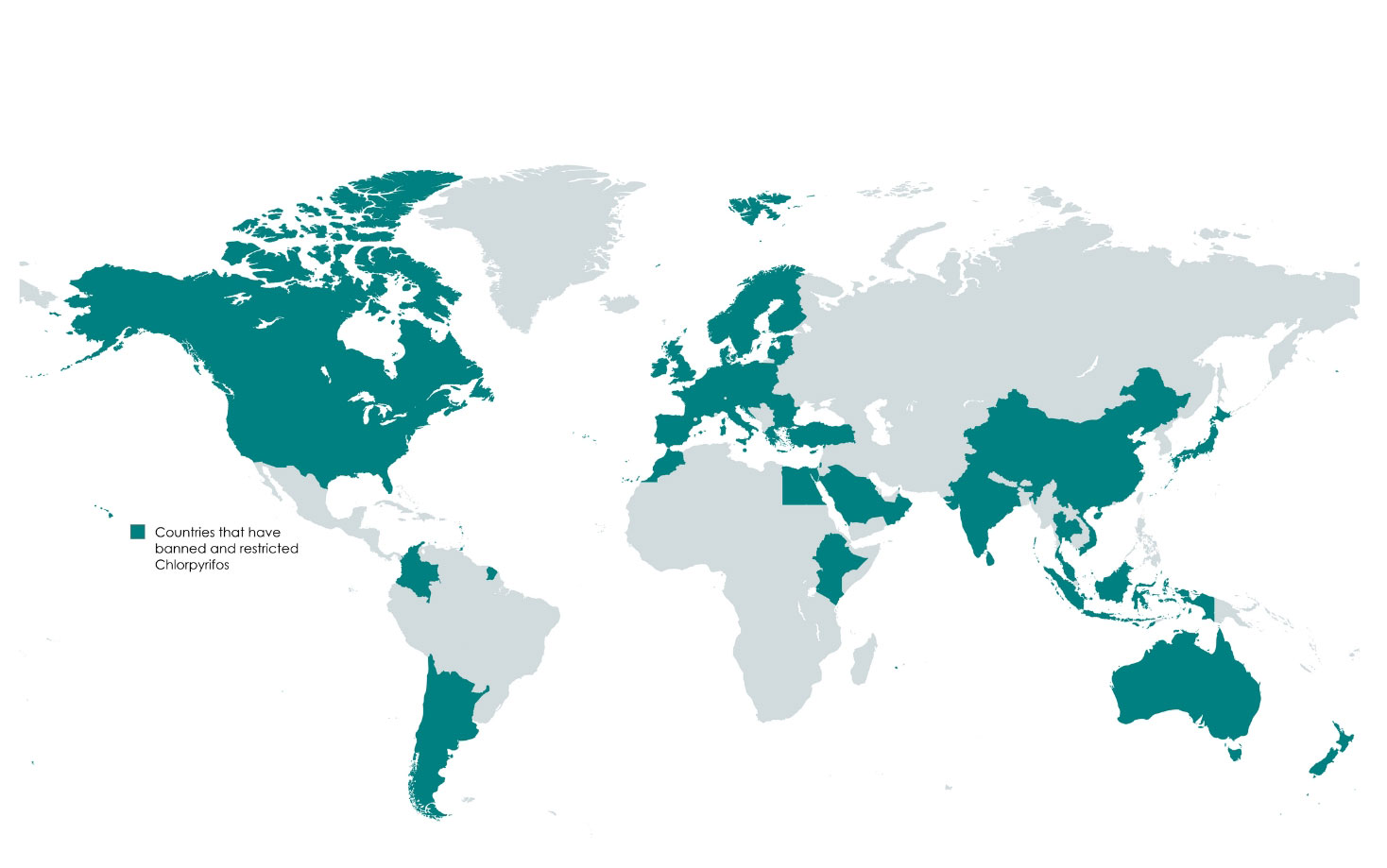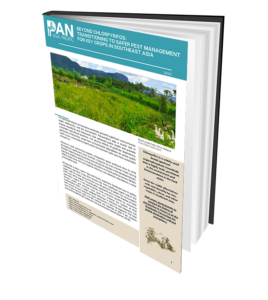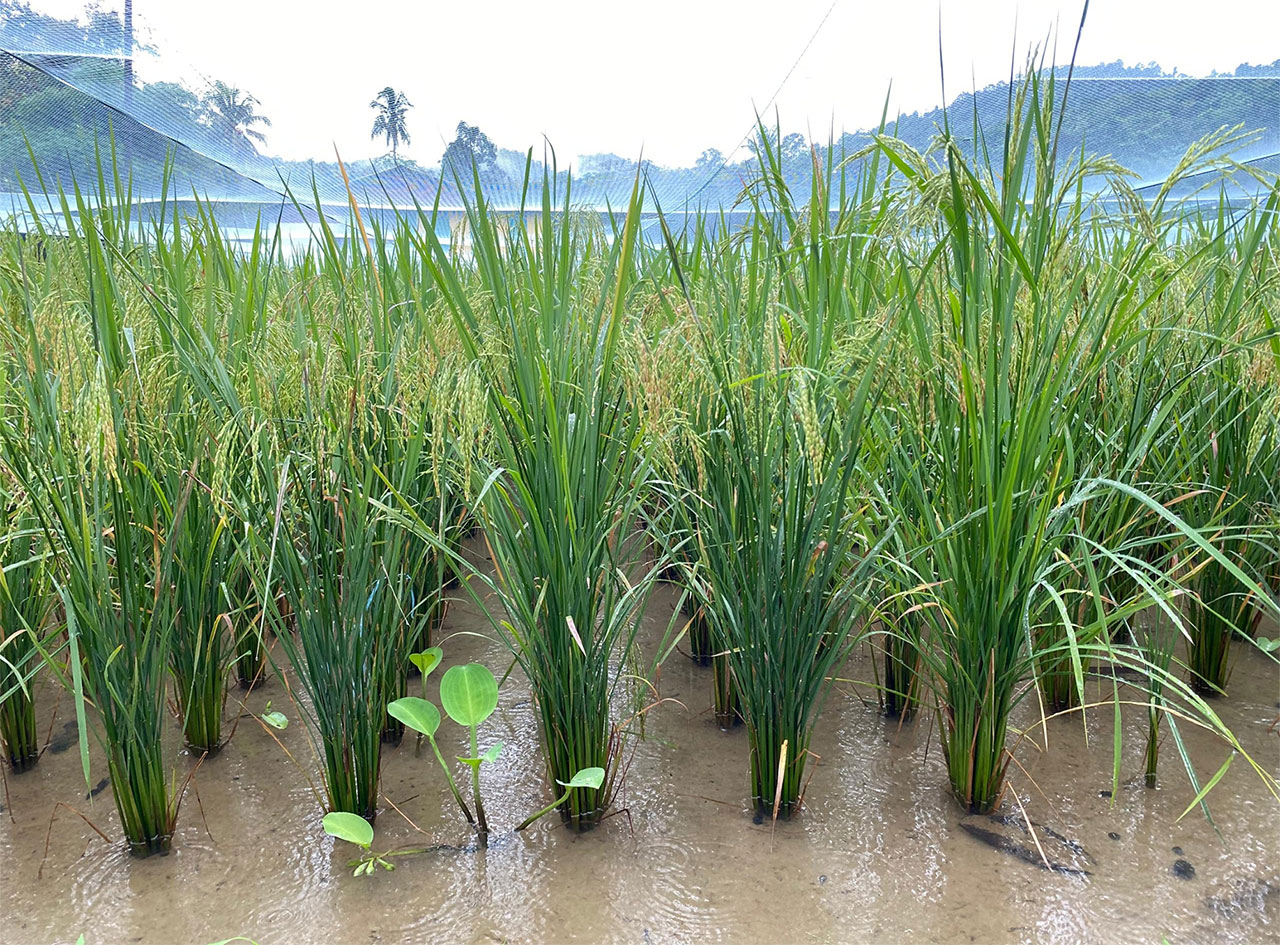On Earth Day, we are reminded of our collective responsibility to protect the planet and ensure a sustainable future for all. As the world prepares for the upcoming Basel, Rotterdam, and Stockholm Conventions (BRS COPs) meetings in Geneva from 28 April to 9 May, countries have a unique opportunity to demonstrate leadership by supporting the global ban on chlorpyrifos, a harmful pesticide that threatens human health and the environment.
A global assessment by the United Nations has highlighted the urgent need for countries to ban chlorpyrifos and support its listing under Annex A of the Stockholm Convention for global elimination. Chlorpyrifos is also nominated for listing under Annex III of the Rotterdam Convention, which promotes information exchange on hazardous chemicals. According to the Persistent Organic Pollutants Review Committee (POPRC), chlorpyrifos causes “significant adverse human health and environmental effects” and meets the criteria for a Persistent Organic Pollutant (POP). A growing list of over 44 countries has already banned or severely restricted chlorpyrifos.

Source: Pesticide Action Network International Consolidated List of Banned Pesticides and UNEP-POPS-POPRC.20-INF-5-Add.1
Despite global consensus, many countries continue to allow their use on food crops, putting public health and ecosystems at risk. For example, random testing of imported Shine Muscat grapes in Thailand revealed chlorpyrifos residues exceeding legal limits, raising serious food safety concerns.
Countries like Thailand, Sri Lanka, and Vietnam have already taken action by banning chlorpyrifos. Meanwhile, countries like Malaysia have restricted its use in agriculture but still allow it for public health. However, according to a study by the National Poison Centre (NPC), from 2006 to 2015, pyrethroids accounted for about 85% of poisoning cases linked to household insecticides. Among organophosphate pesticides, chlorpyrifos was the most common cause of poisoning, followed by malathion.1
 In response, PANAP has been working with farmers in Southeast Asia to promote agroecology and organic farming as safer alternatives to harmful chemicals. Our new report, Beyond Chlorpyrifos: Transitioning to Safer Pest Management for Key Crops in Southeast Asia, highlights these sustainable solutions.
In response, PANAP has been working with farmers in Southeast Asia to promote agroecology and organic farming as safer alternatives to harmful chemicals. Our new report, Beyond Chlorpyrifos: Transitioning to Safer Pest Management for Key Crops in Southeast Asia, highlights these sustainable solutions.
“Agroecology offers a viable solution to the harmful impacts of pesticides like chlorpyrifos, promoting farming practices that protect human health, the environment, and food security,” said Dinesh Rajendran, Pesticide Programme Officer.
Now is the time to act—let’s take responsibility for the future of our planet and the wellbeing of our communities.Banning chlorpyrifos is a critical step in realizing that commitment, aligning words with action to protect both people and planet.
For more information, press contacts:
Alia Diyana, PAN Asia Pacific, alia@panap.net
_____________________________
[1] Kamaruzaman, N. A., Leong, Y.-H., Jaafar, M. H., Mohamed Khan, H. R., Abdul Rani, N. A., Razali, M. F., & Abdul Majid, M. I. (2020). Epidemiology and risk factors of pesticide poisoning in Malaysia: A retrospective analysis by the National Poison Centre (NPC) from 2006 to 2015. BMJ Open, 10(6), e036048. https://doi.org/10.1136/bmjopen-2019-036048
_____________________________








Discussion about this post